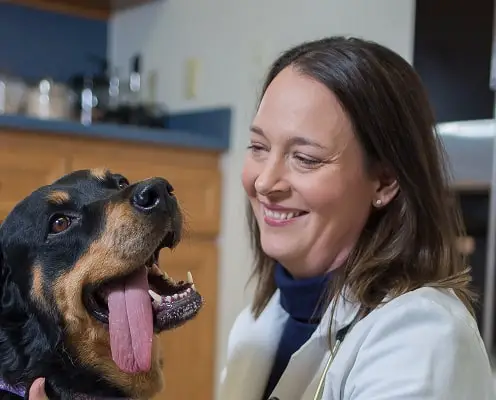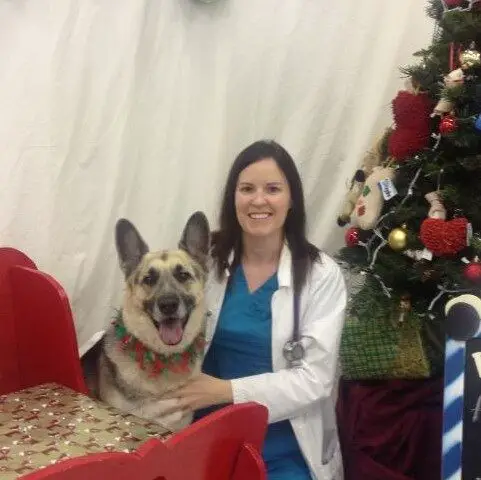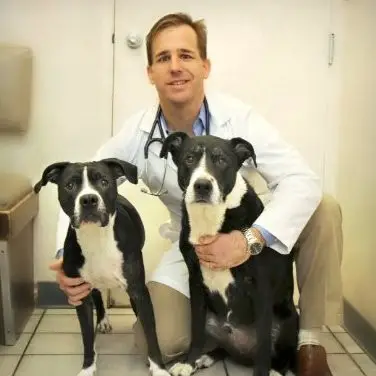About this program
A program that focuses on the scientific study of animal models of human disease and related experimental procedures, and prepares veterinarians and animal health specialists to manage the laboratory use and care of experimental animals. Includes instruction in laboratory animal husbandry, laboratory animal disease, biohazard control, gnotobiology, breeding, comparative anatomy and physiology, comparative gene mapping, protein function, physical and mathematical modeling, computer modeling, stem cell technology, colony and genetic stock management, cryopreservation, applicable regulations, and bioethics.
Career Opportunities
Veterinarians
diagnose, treat, or research diseases and injuries of animals. Includes veterinarians who conduct research and development, inspect livestock, or care for pets and companion animals.
$108350
Doctoral degree
Strong job growth
High job satisfaction
Health Specialties Professors
teach courses in health specialties, in fields such as dentistry, laboratory technology, medicine, pharmacy, public health, therapy, and veterinary medicine.
$124890
Master's degree
Strong job growth
High job satisfaction
Related Majors
Veterinary Reception/Receptionist
A program that prepares individuals, under the supervision of office managers, veterinary technicians, or veterinarians, to provide customer service, visitor reception, and patient intake and discharge services. Includes instruction in veterinary office and animal care facility procedures, veterinary terminology, interpersonal skills, record-keeping, customer service, telephone skills, data entry, interpersonal communications skills, and applicable policies and regulations.
Veterinary Administrative/Executive Assistant and Veterinary Secretary
A program that prepares individuals to perform the duties of special assistants and personal secretaries for practicing veterinarians, veterinary health care facilities and services administrators, and other veterinary professionals. Includes instruction in business and veterinary communications, veterinary terminology, principles of veterinary health care operations, public relations and interpersonal communications, software applications, record-keeping and filing systems, scheduling and meeting planning, applicable policy and regulations, and professional standards and ethics.
Veterinary/Animal Health Technology and Veterinary Assistant
A program that prepares individuals, under the supervision of veterinarians, laboratory animal specialists, and zoological professionals, to provide patient management, care, and clinical procedures assistance as well as owner communication. Includes instruction in animal nursing care, animal health and nutrition, animal handling, clinical pathology, radiology, anesthesiology, dental prophylaxis, surgical assisting, clinical laboratory procedures, office administration skills, patient and owner management, and applicable standards and regulations.
Veterinary Toxicology and Pharmacology
A program that focuses on the scientific study of specific environmental and food hazards affecting domestic and wild animals and the development and action of chemical antidotes and treatments. Includes instruction in small and large animal toxicology and pharmacology, neurotoxicology, pharmacodynamics, pharmacokinetics, neuropharmacology, xenobiotics, drug resistance, pesticides, toxicological pathology, genetic and molecular toxicology, environmental toxicology, drug and toxicant analysis and evaluation, and environmental radiology.
Soil Science and Agronomy
A program that generally focuses on the scientific classification of soils, soil properties, and their relationship to agricultural crops. Includes instruction in soil chemistry, soil physics, soil biology, soil fertility, morphogenesis, mineralogy, hydrology, agronomy, and soil conservation and management.
Soil Chemistry and Physics
A program that focuses on the application of chemical and physical principles to research and analysis concerning the nature and properties of soils and the conservation and management of soils. Includes instruction in soil and fluid mechanics, mineralogy, sedimentology, thermodynamics, geomorphology, environmental systems, analytical methods, and organic and inorganic chemistry.
Veterinary Administrative Services
A general program that prepares individuals to provide administrative support services in a veterinary office or animal care facility. Includes instruction in business office operations, customer service, principles of veterinary health care operations, record-keeping, veterinary terminology, and professional standards and ethics.

.jpg)




.jpg)